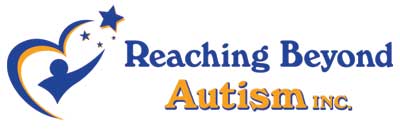WHAT PARENTS SHOULD KNOW
What is Autism/Autism Spectrum Disorder (ASD)?
Autism spectrum disorder (ASD) involves persistent impairment in reciprocal social communication and social interaction, as well as restricted, repetitive patterns of behavior, interests, or activities. Features of autism start to become evident in early childhood, typically between the ages of 12-24 months, and ASD is diagnosed four times more often in males than females (Reference: DSM-5-TR; American Psychiatric Association, 2022).
What is Applied Behaviour Analysis (ABA)?
ABA is the scientific study of behaviour that focuses on identifying the environmental variables that influence and maintain behaviour, and applying these principles to change behaviour of social significance. The principles of ABA are essential in the treatment of autism, but what many don’t know is that ABA is used beyond the autism population in fields such as; organizational behaviour management, marketing, education, sports, and addictions, to name a few.
How is ABA beneficial for individuals with autism?
Practitioners utilize the principles of applied behaviour analysis to develop individualized intervention plans for individuals with autism. These principles are used to increase and strengthen targeted skills and decrease challenging behaviours. The use of ABA with individuals with autism is an evidence-based practice with an emphasis on positive reinforcement.
Is there funding for ABA services?
Yes. Provincial funding is provided through the Ontario Autism Program (OAP). Children and youth who have been diagnosed with autism spectrum disorder (ASD) by a qualified professional are eligible for the program. Children receive services and support until the age of 18. For more information or to register your child, visit: https://accessoap.ca
What does ‘evidence-based practice’ mean?
For a treatment to be considered ‘evidence-based’ the approach must have empirical evidence/research that supports the validity of that treatment. There is an extensive body of research that supports the effectiveness of applied behaviour analysis as a treatment for individuals with autism.
What is the difference between ABA and IBI?
Applied behaviour analysis (ABA) is the scientific study of behaviour that focuses on the relationship between environmental variables and their impact on behaviour. Intensive Behavioural Intervention (IBI) is the application of ABA principles. In other words, IBI uses ABA principles in an intensive therapeutic approach for children with autism. These two terms are often used interchangeably and can be quite confusing. In 2000, the Ministry of Children, Community and Social Services (MCCSS) adopted the term IBI when they began to provide funding for ABA services. In 2018, the MCCSS dropped the term IBI and now only uses the term ABA.
Who can provide ABA services?
Parents often face the difficult task of trying to determine who is qualified to work with their child. As parents research different service providers, an essential question to ask is, ‘Who is supervising the program?’. The Ministry of Children, Community and Social Services (MCCSS ) has stipulated that an ABA program must be supervised by a Board Certified Behaviour Analyst (BCBA) to receive OAP funding. Regardless of whether a family is receiving funding or still waiting, this should be a standard that parents require of their service provider.
For OAP funding to be used for ABA services, the service provider must be an OAP-approved provider. Reaching Beyond Autism, INC. is an approved provider and is owned and operated by a BCBA with over 25 years of experience working with children with autism, 14 of which have been as a BCBA.
To search the list of OAP-approved service providers, visit: https://www.oapproviderlist.ca
Is data collection important?
Yes! At Reaching Beyond, a student’s program incorporates several different data collection systems depending on the goal of each program. Reliable data provides valuable information on whether a skill is being acquired and when revisions are needed. Instructor Therapists are trained on the importance of data collection and how to record useful, consistent, and dependable data.
Is parent involvement important?
Yes! Parent participation is an essential component in a child’s ABA program. Parent meetings are held to review their child’s progress and discuss new goals. Parents are taught to run generalization steps of their child’s programs, which helps keep parents appraised of their child’s progress and supports the generalization of newly acquired skills to novel people and environments. Parents play a vital role in the implementation of behaviour protocols and self-help, which the family and ABA team often implement simultaneously to ensure consistency.
Important Links:
 AccessOAP
AccessOAP
https://accessoap.ca
 Secret Agent Society®
Secret Agent Society®
https://www.secretagentsociety.com
 Ministry of Children, Community and Social Services
Ministry of Children, Community and Social Services
Ontario Autism Program (OAP)
Link: www.children.gov.on.ca/htdocs/English/specialneeds/autism/ontario-autism-program.aspx

